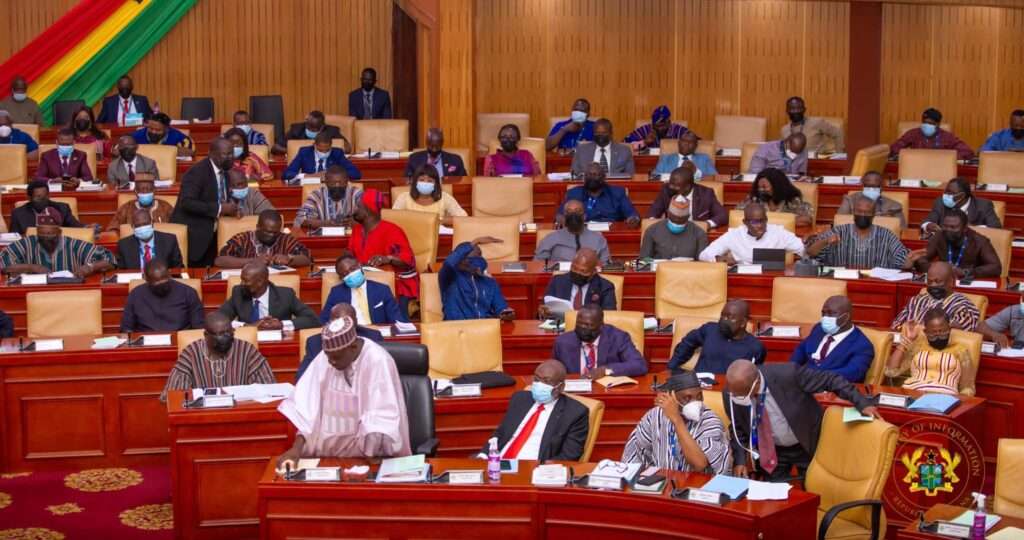Lawyer Richard Dela Sky has stressed that Parliament’s rules and procedures are subordinate to the Constitution, which is founded on the will of the people.
Richard Sky asserted that Ghana’s Parliament is not sovereign, as Article 1 of the Ghanaian Constitution indicates that sovereignty resides in the people, which underpins and reserves power exclusively for the Constitution.
He emphasized that this deviation from the principle of parliamentary sovereignty, as seen in the UK’s constitutional monarchy, reflects a deliberate choice by the framers of Ghana’s Constitution.
“It follows that where the Constitution expressly provides for a particular procedure, Parliament cannot circumvent or deviate from that prescribed path under the guise of being ‘masters of their own rules’. This assertion of parliamentary supremacy over procedural matters is incompatible with the supremacy of the Constitution of Ghana.
“Furthermore, Articles 2 and 130 of the Constitution grant the Supreme Court the exclusive authority to interpret and enforce the provisions (letter and spirit) of the Constitution”.
Richard Dela Sky
Dela Sky further noted that if Parliament strays from the explicit language or intent of the Constitution, the Supreme Court can issue orders to enforce its will.
According to him, disobeying such orders is deemed a “high crime” under Article 2 of the Constitution, regardless of the position or status of those involved, including the President. “It was in keeping with the foregoing that the Supreme Court made its decision Friday to freeze Speaker Bagbin’s declaration of four vacancies in Parliament…”

Sky further stated that while one may disagree with the Supreme Court’s ruling, disobedience or refusal to comply with its orders is not an option under the Constitution.
He emphasized that the Supreme Court’s authority to uphold the Constitution’s provisions and spirit is sacred, and its orders must be followed, regardless of any disagreement with the Court’s interpretation or decision.
The lawyer maintained that parties affected by the Court’s orders can respectfully but firmly express their disagreement, but they cannot disregard or disobey the Court.
Sky Highlights Legal Recourse for Court Orders
Furthermore, Richard Dela Sky added that if someone wants to challenge the Supreme Court’s orders, they should seek legal counsel and follow the proper legal channels to persuade the Court to set aside its orders.
He asserted that until a successful challenge is made, the Supreme Court’s orders remain binding and enforceable.

“Interestingly, a parallel constitutional matter is currently unfolding in Kenya, where the High Court, which possesses, among other things the jurisdiction to interpret the Kenyan Constitution, has issued temporary orders stopping the replacement of Rigathi Gachagua as Deputy President until October 24. On that date, the matter will be mentioned before a bench appointed by Chief Justice Martha Koome”.
Richard Dela Sky
Richard Sky noted that Justice Chacha Mwita issued this order on Friday, just moments after all 236 Members of Parliament voted ‘Yes’ for Prof. Kindiki Kithure to succeed Rigathi Gachagua as Deputy President.
Additionally, he indicated that Justice Mwita certified Mr. Gachagua’s petition as raising significant questions of law and public interest, justifying judicial review. “Note that both houses of the Kenyan Parliament had already voted to convict and impeach the Kenyan Deputy President”.
Capitalizing on Kenya’s issue, Sky noted that, Gachagua deemed the procedure used to dismiss him unconstitutional and approached the High Court with requests that led to Friday’s orders.
He asserted that Kenya’s Vice President cannot assume office until the Court’s interim orders either expire or are overturned, suggesting that the same applies to the ongoing situation between Ghana’s Parliament and the Supreme Court.
He emphasized that the situation in Kenya highlights the vital role of independent judiciaries in protecting constitutional principles.
According to Sky, it also ensures that all branches of government, including the legislature and executive, operate within their designated constitutional mandates. “While disagreements and legal challenges may arise, it is imperative that the orders and decisions of the courts tasked with upholding the Constitution are respected and adhered to, pending any successful legal recourse”.
READ ALSO: MC Yaa Yeboah Shares Painful Memory





















